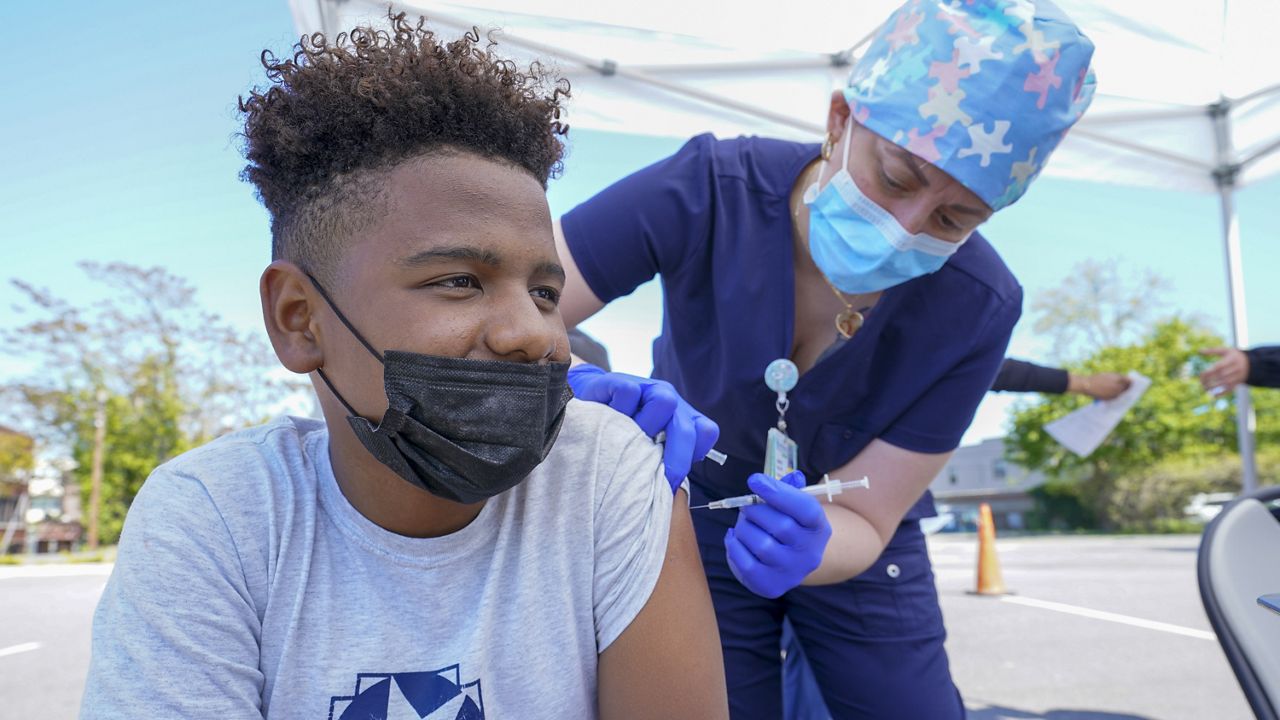A Centers for Disease Control and Prevention (CDC) safety panel said that there is a “likely association” between a rare heart inflammation in adolescents and young adults after their second dose of an mRNA COVID-19 vaccine.
Health officials are tracking around 1,200 cases of myocarditis, the inflammation of the heart muscle, or pericarditis, inflammation of the membrane which surrounds the heart, according to the CDC — most of them occur in people 30 years of age and younger who received Pfizer’s or Moderna’s COVID-19 vaccine.
“Clinical presentation of myocarditis cases following vaccination has been distinct, occurring most often within one week after dose two, with chest pain as the most common presentation,” said Dr. Grace Lee, the chair of the Advisory Committee on Immunization Practices’ Vaccine Safety Technical Subgroup.
Of that figure, through June 11, 267 cases were reported after receiving one dose of the mRNA vaccines, with 827 reported after receiving two doses, with 132 cases where the dose number is unknown according to the CDC.
In all, there were 12.6 cases of heart inflammation per million doses for both vaccines combined through June 11, per the CDC. About 300 million shots had been given as of June 11, the CDC said.
“This is still a rare event,” Dr. Tom Shimabukuro said at the ACIP meeting Wednesday. Most cases appear to be mild, the CDC said.
Health officials said that the benefits of vaccination still outweigh the risks.
Following the meeting, a group of medical professionals and public health leaders, including Dr. Rachel Levine, the Department of Health and Human Services’ Assistant Secretary for Health, and CDC Director Dr. Rochelle Walensky, issued a statement on the benefits of vaccination.
“The facts are clear: this is an extremely rare side effect, and only an exceedingly small number of people will experience it after vaccination. Importantly, for the young people who do, most cases are mild, and individuals recover often on their own or with minimal treatment,” the statement read.
“In addition, we know that myocarditis and pericarditis are much more common if you get COVID-19, and the risks to the heart from COVID-19 infection can be more severe,” they continued.
The group “strongly” encouraged everyone over 12 years old to get vaccinated, “as the benefits of vaccination far outweigh any harm.”
“Especially with the troubling Delta variant increasingly circulating, and more readily impacting younger people, the risks of being unvaccinated are far greater than any rare side effects from the vaccines,” they wrote, adding: “We recommend getting vaccinated right away if you haven’t yet. It is the best way to protect yourself, your loved ones, your community, and to return to a more normal lifestyle safely and quickly.”
As of Wednesday, more than 319 million vaccine doses have been administered, with more than 150 million Americans fully vaccinated, about 45.4% of the total population.



